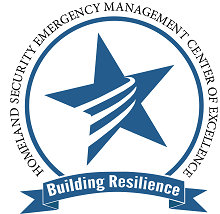What’s in the News
Discover career information, conference dates, webinars, and important information about planning, preparing, and training for a natural or man-made disaster
Not Nearly Enough
Even predictable natural disasters frequently catch elected officials by surprise. A discouraging number of elected officials and senior staff act as if foreseeing and managing potential disaster impacts is a job for “another budget cycle.” So what are they doing in the meantime? Not nearly enough”.
After the Wildfire – Recovery and Reclamation of Land Tips
After the Wildfire – Recovery and Reclamation of Land Tips By Nancy Aird As the population builds out into rural areas, the chances of [...]
Are You Wildfire Ready?
ARE YOU WILDFIRE READY? Mitigate, Prepare and Prevent By Nancy Aird The wildland urban interface (WUI) is the area where homes are built near [...]

Our Center provides statewide leadership which supports diversity and ensures the industry’s academic programs remain cutting-edge.
What We Do?
The Center of Excellence for Homeland Security-Emergency Management (HSEM) helps state community and technical colleges (CTC) prepare a skilled workforce to help maintain our national security, ensure an effective response to all-hazard events through education and training initiatives, and build disaster resilience in our communities.
Our goal is to provide effective leadership and coordination that rapidly responds to the interests of educational institutions and workforce training needs of the HSEM (all-hazard) business and industry sectors across the state. From our offices at Pierce College in Lakewood, Washington, we accomplish this through working with a coalition of all 34 community and technical colleges, public agencies, and private sector organizations.
OUR GOALS
The Center serves the interests of education institutions and workforce training needs of Homeland Security Emergency Management business and industry sectors across Washington State.
Coordination – responds to workforce training needs
Career Pathways – promote and establish career pathways
Preparedness – help communities prepare for disasters
We help prepare a skilled workforce to maintain our national security and effectively respond to all hazard events through education and training.

